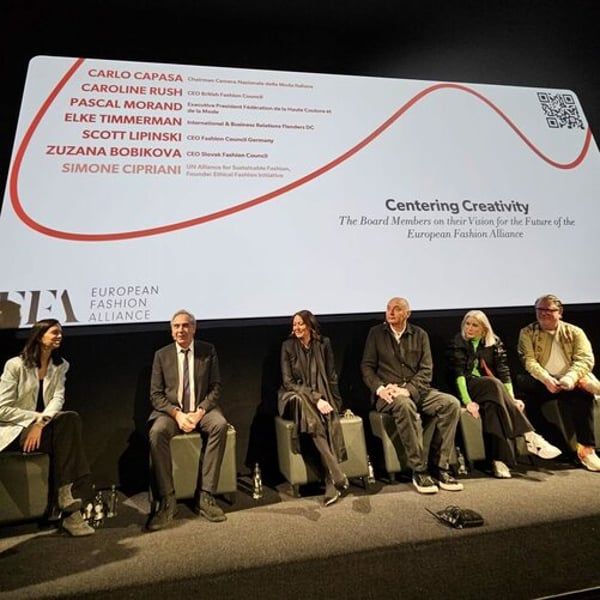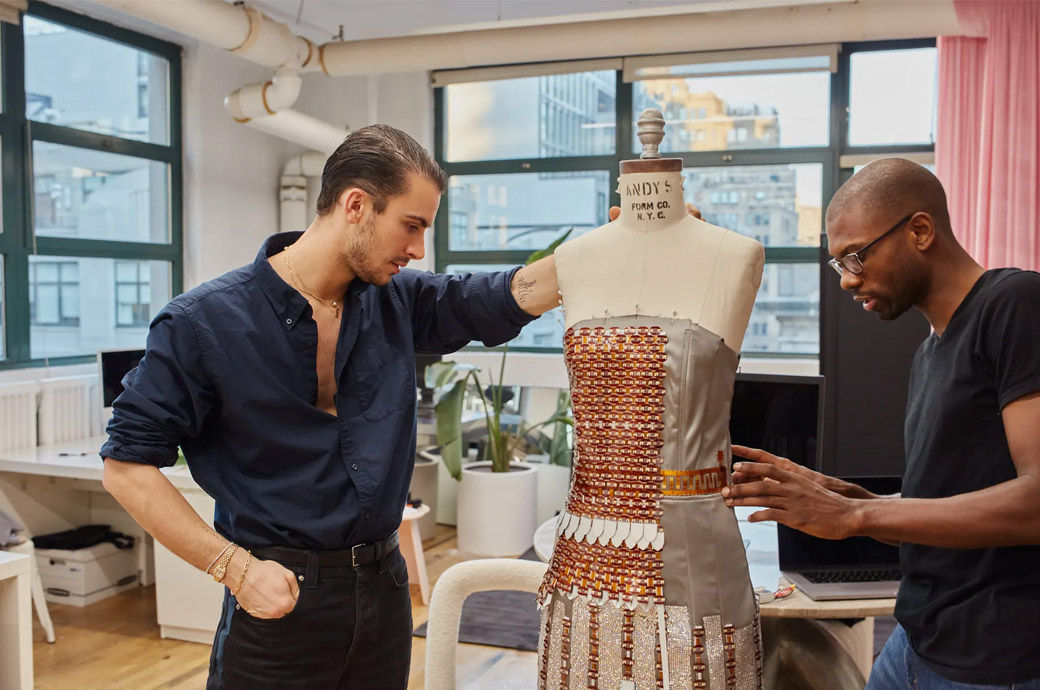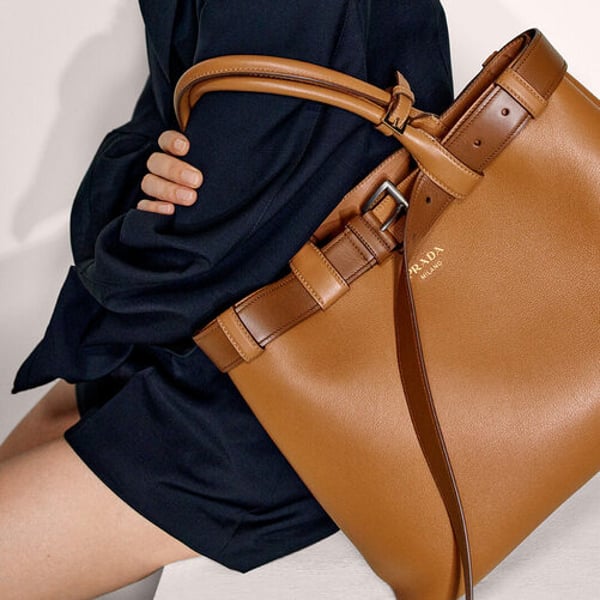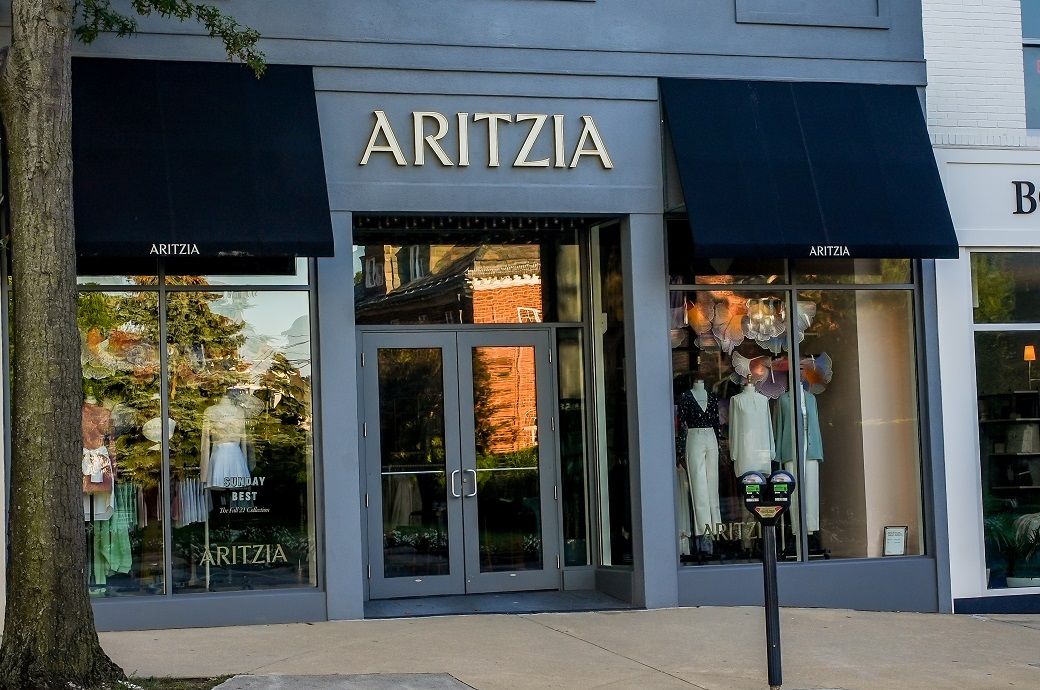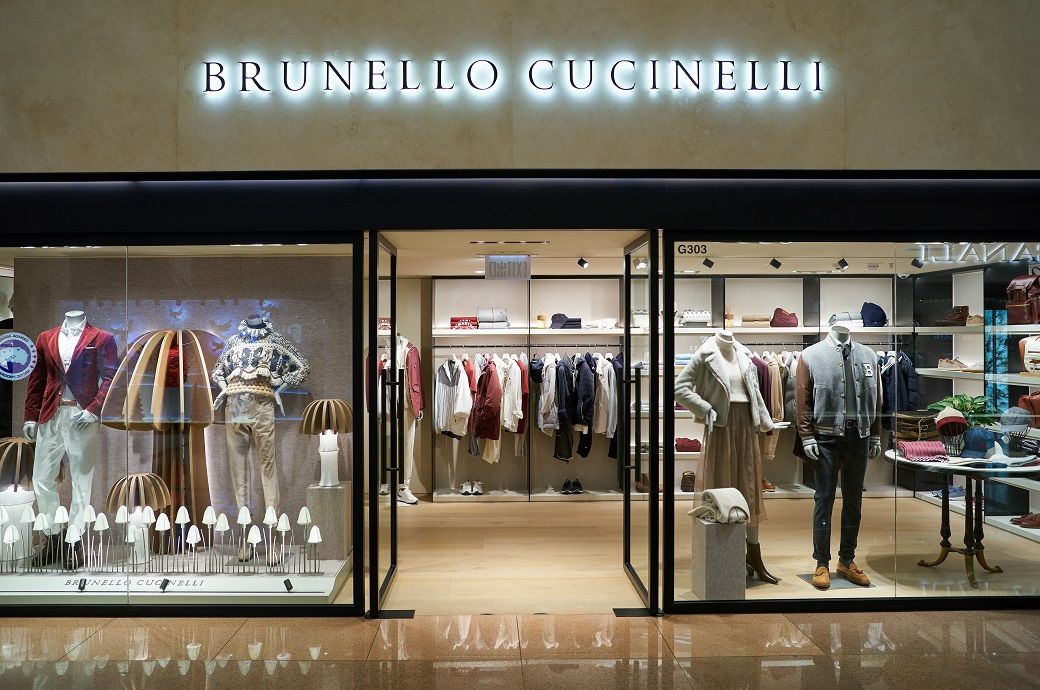Translated by
Cassidy Stephens
Published
March 6, 2024
The creative fashion industries are showing their unity and continue to unite around issues of sustainability and regulation. The European Fashion Alliance (EFA), which had already met in Brussels for a round table in June 2023, organized its first colloquium on Tuesday, March 5, also in the Belgian capital, to take stock of the progress of the sector. in ecological terms. transition and regulation, in the presence of Iliana Ivanova, the European Commissioner for Education, Culture, Multilingualism and Youth, and the highest European fashion authorities, among others.
It was an opportunity for the industry to reaffirm its unity through the EFA, an alliance founded in 2022, which created a legal entity in Berlin at the beginning of the year, bringing together 28 members, 25 fashion federations, 10,000 SMEs and 11 companies. Fashion. Weeks. More than a hundred people attended the event, during which the EFA presented its first survey “The State of European Fashion”, which takes stock of the creative fashion industry in Europe.
Among the most striking results of this research carried out among the actors in the sector in Europe (brands and professionals) is the difficulty that companies have in committing to the ecological transition, particularly SMEs (47% of which employ less than ten people), which represent more than 90% of the textile and clothing industry in Europe. While 88% of respondents said they had invested in sustainability in terms of human and financial resources, 59% said they did not have tools or support for the sustainable transition, and only 52% of respondents said they were familiar with Ecodesign to Sustainable Products. Relugation (ESPR), which the European Parliament's environment committee adopted earlier this year after being approved by member states.
Involve SMEs
Among other things, it introduced a digital passport for a wide range of products, including clothing. It also stipulates a ban on destroying new, unsold clothing, as well as a ban on recycling unsold items. “Large luxury groups are aware of the changes in the rules on ecological design. The same is not true for SMEs, which are not yet all involved. Our role is also to inform them about these issues,” says Elke Timmerman, head of the department. international relations in the Creativity District of Flanders.
“There is still a lot to do, especially in terms of image. In fact, 66% of those surveyed believe that the general public has a negative perception of fashion, because it is associated with the bad practices of fast fashion. We need fix things and better explain the real value of creative fashion,” he continues. “This survey is an initial basis that will also help us define our recommendations at European level. The important thing for us is that we are all aligned,” she concludes.
“The important thing is to put creativity at the center. Our demands regarding eco-responsibility and traceability have been heard. But other points must be perfected, because they are too general to be applied as they are in the fashion sector. regarding circularity and recycling, because not all materials can be recycled in the textile sector. We ask that you listen to us,” explains Carlo Capasa, president of the Italian Fashion Chamber (CNMI).
In particular, EFA members want to make their voices heard at a time when the European Commission has yet to adopt the delegated acts (i.e. implementing decrees) that will specify for each sector how to implement the new regulations. ESPR. “With this first study that we have just published, we have weighed all sustainability issues. For us, the goal is to speak with a single voice to preserve, build and promote the values of European creativity and know-how. In our In this case, the criteria finally adopted must reflect these values,” comments Pascal Morand, executive president of the Fédération de la Haute Couture et de la Mode.
“In our approach to sustainability, we have to think in terms of values, not volumes. There are cultural, intellectual, social, economic and environmental values. All of them must be taken into account and the process must be integrated throughout the company” , summarizes Guy Morgan, director of Sustainable Development at Chanel, who participated in one of the round tables. This is not always easy, especially for smaller companies, such as independent designers like Danish Henrik Vibskov. “With all these new rules we are confused. We would need a full-time person to handle this, which is impossible for small businesses like mine,” he says.
Ruth Reichstein, policy coordinator in the office of the president of the European Commission, highlights “the crucial role of the creative sector and the importance of using it to promote the ecological transition”, while recognizing that “greater coherence” is needed.
“Today, two actors participate in this value creation process: on the one hand, the European institutions with the Green Deal, and on the other, the creative industry with the efforts it is making towards sustainability. If both continue in this direction, the entire planet will benefit,” says Simone Cipriani, active member of the United Nations Alliance for Sustainable Fashion and founder of the Ethical Fashion Initiative, recalling that “Europe is an oasis where we think about a possible and dignified future. for all.”
Copyright © 2024 FashionNetwork.com All rights reserved.

